Conflict in the Middle East may not be a surprise, but the latest wave of militancy has the potential to seriously affect corporate interests
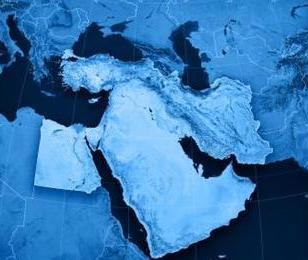
The rise of the Islamic State of Iraq and Syria has raised serious concern in the West. Significant territorial gains, followed by targeted attacks on oil and water infrastructure, have also commanded corporate attention.
The terrorist organisation is a splinter group of Al-Qaeda that pledges to establish an Islamic caliphate in the region, break the borders of Jordan and Lebanon and free Palestine.
The severity and frequency of attacks in Iraq began increasing around the beginning of this year as the group sought to exploit a rising discontent among the country’s Sunni population, regarding the Shia-led government’s separatist policies.
In the past nine months, the Islamic State has made significant territorial gains, including the Iraqi cities of Mosul, Tikrit, Falluja and Tal Afar and Raqqa in Syria. In response to US air strikes over territory controlled by the Islamic State, the latter used social media to publish video messages, in which captured Syrian forces and US journalists were executed.
Last month, the US and partners from a Middle East coalition and later the UK, began a military offensive against the Islamic State. As a result, there is a significant risk that corporate activity across the region could be seriously affected by a conflict between the group and the developed world, meaning firms should consider their activity carefully.
“Most of Control Risks’ clients stopped working in Syria about two or three years ago, mainly for reputational reasons,” says Control Risks’ Middle East director Jan Kamphuisen, who explains how corporate operations can unintentionally fuel a conflict by benefiting one side.
Since a sizable proportion of foreign investment in Syria derives from the energy sector, which contributes to much of the government’s revenues and the mobility of armed forces in conflict, firms should be aware of the reputational risks attached to operating in the region.
“You cannot be a neutral party, even if you argue you are neutral or apolitical – one way or another you are involved in that conflict. Reputational risk is an underlying reason for many firms to back out of the country,” Kamphuisen says.
Indeed, the Islamic State’s activity has been felt most in the oil and gas sector, in which an increase in oil prices resulted from the jihadists’ siege on an oil refinery outside Baghdad, creating a Wild West-type scenario, with Kurdish forces seizing control of another refinery.
“Oil production in Iraq was down by about 150,000 barrels in June, which is not a huge amount, but it’s still significant,” says Maplecroft principal analyst Torbjorn Soltvedt.
“The reality on the ground is changing completely with the Kurdish Peshmerga forces in control of Kirkuk. The Kurdish Regional Government is pumping oil from Kirkuk into its own oil infrastructure,” he says.
Financial markets have also been directly affected by Islamic State activity in Iraq and Syria. “Between 2009 and up until the recent crisis, the Iraqi stock market had the fastest-earning-per-share-rate in the world, but the current crisis is likely to damage investor confidence and slow down some growing interests that have been taking place in Iraq,” Soltvedt says. Furthermore, wider economic and political shifts resulting from Islamic State’s emergence could affect businesses with operations in the Middle East.
A long-standing religious rivalry between Iran’s Shia-led government and the Sunni regime in Saudi Arabia is a significant factor for any foreign investor to consider. The perceived oppression of Sunni Muslims in Iraq under the US-backed Shia regime was a major contributing factor to the rise of the Islamic State to power.
New alignments
Although the West has traditionally enjoyed a healthy trading partnership with Saudi firms, Iran presents attractive opportunities for corporate growth, despite a historically hostile relationship with the West, particularly the US.
“There is clear alignment of interests between the US and Iran,” Soltvedt says. “Any kind of formal or extensive kind of co-operation is unlikely as it would be controversial. It’s not that long ago since Iranian-backed militias were carrying out attacks against US forces in Iraq, so it’s clearly a very controversial issue.”
Nevertheless, the US’s ongoing engagement with Iran regarding the latter’s nuclear programme – together with China, Russia, the UK, France and Germany, which comprise the P5+1 – should also be borne in mind, since this could potentially open new avenues for businesses to trade more freely between both nations.
“Potential co-operation between the US and Iran, even if it were unofficial, could adversely affect US-Saudi relations,” says Soltvedt. “Saudi Arabia is already bitter about the extent to which Iran took advantage of the removal of Saddam Hussein. King Abdullah still blames the US to some extent for having allowed that and, of course, is upset about being left in the dark about the nuclear negotiations [between the US and Iran].
“If there were to be some co-operation [between the US and Iran], it would probably further sour relations between Saudi Arabia and the US, which could have a big economic effect as there is a lot of trade between the two and it’s important in terms of the region’s stability, security and investor confidence.”
Even so, the potential opportunities for businesses in Iran are significant and improved relations with the US could serve to improve the reputation of both nations.
“Iran has a huge potential, but poses reputational and operational risks stemming from the international sanctions regime. If Iran and the P5+1 can agree on a permanent agreement, we can expect to see sanctions relief over a longer period of time, probably five to 10 years,” Kamphuisen says. “Iran offers a number
of opportunities. It’s a complex market, but it could be a good news story.”
Yet, he adds, the relationships between Middle Eastern nations are far too complex to simplify down to religious and ethnic differences, and the region should not be defined by the violence taking place in Iraq, Syria and recently between Gaza and Israel.
“Much larger parts of the Middle East are stable, and key examples for that are the Gulf States and Iran, which have a very low security risk rating and for which our forecast remains low.”
Although Kamphuisen is keen to highlight the media’s focus on high security risk areas of the Middle East, Dr Robert Davies, senior visiting fellow at Cass Business School, says the emergence of the Islamic State is “a symptom of something much broader that businesses need to consider”.
Redrawing the map
Davies believes the world map is set to change dramatically in the next 50 years and that multinationals should consider an alternative world order when strategising. He identifies five key warning signals that could lead to the disillusionment of nation states, including broken borders – whereby borders no longer represent the interests of those within them – a loss of control by nation leaders, the empowerment of individuals and groups through technology, a general dissonance towards the Washington Consensus post-financial crisis and the emergence of new empire builders.
Regarding new empire builders, the emergence of the Islamic State as well as people such as Russian president Vladimir Putin, who is spearheading a Eurasian union currently comprising Russia, Belarus and Kazakhstan to rival the EU, signifies that “what we are witnessing with Islamic State is symptomatic of a broader issue, which is the start of the break-up and reformation of nation states,” Davies says. “The level of doubt in the world at the moment is high, for example, incidents that have occurred this year include the Ukraine crisis, doubts about growth in Europe, the Islamic State and the Israel-Gaza conflict.”
In the same way Kamphuisen urges multinationals to consider the wider picture when assessing the Middle East, Davies highlights the significance of the Islamic State within a context of global uncertainty. Although activities are confined to northern Iraq and north-east Syria, the group damaged foreign investor confidence in the Middle East by targeting energy and critical infrastructure.
With a military intervention increasingly likely, businesses should monitor shifts in the political, security and reputational risk landscapes that could transform the environment for corporates operating in the Middle East. Asa Gibson
Dr Robert Davies is also author of The Era of Global Transition





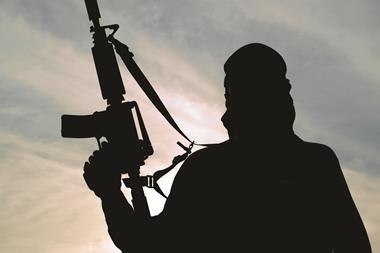
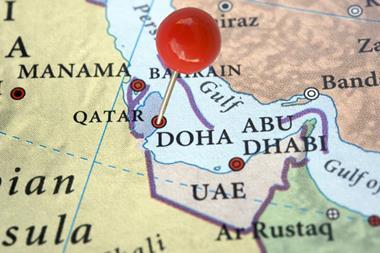
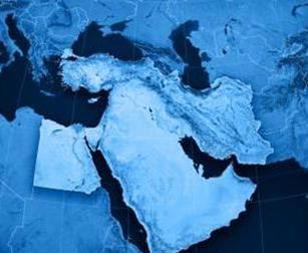

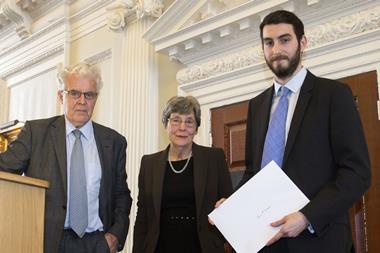










No comments yet